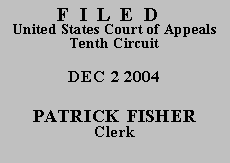

| UNITED STATES OF AMERICA, |
|
| v. | |
| ISAURO SAMORA-SANCHEZ, |
I. Factual Background.
On October 14, 2003, a Border Patrol Agent encountered Mr. Samora-Sanchez in a Greyhound bus station in Albuquerque, New Mexico. Mr. Samora-Sanchez admitted that he was a Mexican citizen illegally in the United States. A check of immigration records revealed that Mr. Samora-Sanchez had been deported from Laredo, Texas on February 28, 2001. This deportation occurred after he was convicted in June 2000 in Oklahoma of assault with a deadly weapon and carrying a firearm while intoxicated. There was no record of Mr. Samora-Sanchez receiving consent from the Secretary of Homeland Security to reapply for admission into the United States.
Mr. Samora-Sanchez entered into an agreement pleading guilty to the offense of reentry of a deported alien previously convicted of an aggravated felony in violation of 8 U.S.C. § 1326(a)(1) and (2), and (b)(2). At sentencing he requested a downward departure of two levels, based on USSG § 5H1.6, due to his extensive family obligations. He also entered a Motion to Impose a Sentence Without Regard to the Sentencing Guidelines. He argued that the PROTECT Act amendments rendered the Guidelines unconstitutional because the amendments impermissibly encroached on judicial discretion. The district court orally denied the motion because the PROTECT Act was not relevant to Mr. Samora-Sanchez's case.
The court then proceeded with sentencing under the Guidelines. The court determined that the base offense level was 8. Mr. Samora-Sanchez's prior deportation added 16 levels to the base offense level. He received a 3-level reduction for acceptance of responsibility. His criminal history category was II based on a DUI and the Oklahoma assault and weapons conviction. Using an offense level of 21, the court determined that his sentencing range was 41 to 51 months and sentenced him to 41 months.
II. Analysis.
Mr. Samora-Sanchez argues that the Guidelines are unconstitutional for two reasons. First, he contends that the PROTECT Act's amendments to the Guidelines render the Guidelines unconstitutional. Mr. Samora-Sanchez does not have standing to bring this claim. To have standing, a plaintiff must show (1) an injury in fact that is concrete, particularized, actual and imminent, rather than conjectural and hypothetical; (2) a causal connection between the injury and the conduct complained of; and (3) a likelihood that the injury will be redressed by a favorable decision. Wyoming Sawmills v. United States Forest Service, 383 F.3d 1241, 1246 (10th Cir. 2004). Mr. Samora-Sanchez's challenge to the PROTECT Act does not satisfy the second requirement, because the PROTECT Act had no effect on his sentence. The PROTECT Act restricts the authority of district courts to grant downward departures in child sex cases and other crimes against children. See Pub. L. 108-21, § 401, 117 Stat. 650, 667, 672-73. It also alters the standard of review for appellate courts reviewing downward departures. See id., 117 Stat. 670-71.(1) Mr. Samora-Sanchez was not convicted of a crime against children, and there was no downward departure to be appealed. Consequently, he cannot demonstrate the requisite causal connection between his injury and his claims concerning the PROTECT Act. As a result, we will not consider his arguments that the amendments impermissibly encroach on the judicial function.
Second, Mr. Samora-Sanchez argues that the application of the Guidelines to him violates the separation of powers. The statute Mr. Samora-Sanchez was charged with violating, 8 U.S.C. §1326(b)(2), provides for a maximum sentence of 20 years and contains no mandatory minimum. Mr. Samora-Sanchez contends that the Guidelines usurp the "essential judicial function" of determining his sentence within the 20-year range. Aplt. Brief-in-Chief 18. Mr. Samora-Sanchez does have standing to bring this claim. His sentence is a concrete injury, there is a causal connection between the Guidelines and his injury, and a judgment striking down the Guidelines as applied or on their face would redress his injury.
Unfortunately for Mr. Samora-Sanchez, the argument that discretionary sentencing is an integral part of the judicial function is fanciful. The United States Supreme Court has stated, without reservation, that "Congress has the power to define criminal punishments without giving the courts any sentencing discretion." Chapman v. United States, 500 U.S. 453, 467 (1991) (citing Ex parte United States, 242 U.S. 27, 37 (1916)); see also Mistretta v. United States, 488 U.S. 361, 364 (1989) (stating that "the scope of judicial discretion with respect to a sentence is subject to congressional control"). If completely determinate sentencing is constitutional, then it follows that the circumscribed exercise of discretion in Mr. Samora-Sanchez's case is likewise constitutional. Even if we were inclined to accept Mr. Samora-Sanchez's argument as a matter of first principle (which we are not), "it is [the Supreme] Court's prerogative alone to overrule one of its precedents." State Oil Co. v. Khan, 522 U.S. 3, 20 (1997).
Accordingly, we AFFIRM the district court's denial of Mr. Samora-Sanchez's
Motion to Impose Sentence Without Regard to Sentencing Guidelines.
Entered for the Court,
Michael W. McConnell
Circuit Judge
*.After examining the briefs and appellate record, this panel has determined unanimously that oral argument would not materially assist the determination of this appeal. See Fed. R. App. P. 34(a)(2); 10th Cir. R. 34.1(G). This order and judgment is not binding precedent, except under the doctrines of law of the case, res judicata, and collateral estoppel. The court generally disfavors the citation of orders and judgments; nevertheless, an order and judgment may be cited under the terms and conditions of 10th Cir. R. 36.3.
1. The Act also requires the Sentencing Commission to amend the Guidelines to reduce the incidence of downward departures. See id., 117 Stat. 674-76. That provision, too, has no effect on Mr. Samora-Sanchez's sentence.